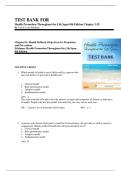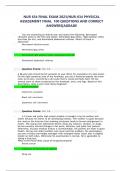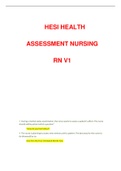Exam (elaborations)
TEST BANK Health Promotion throughout the Life Span 8th Edition by Carole Lium Edelman Updated A+
- Course
- Institution
- Book
TEST BANK Health Promotion throughout the Life Span 8th Edition by Carole Lium Edelman Updated A+
[Show more]






